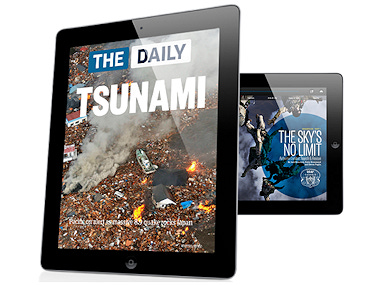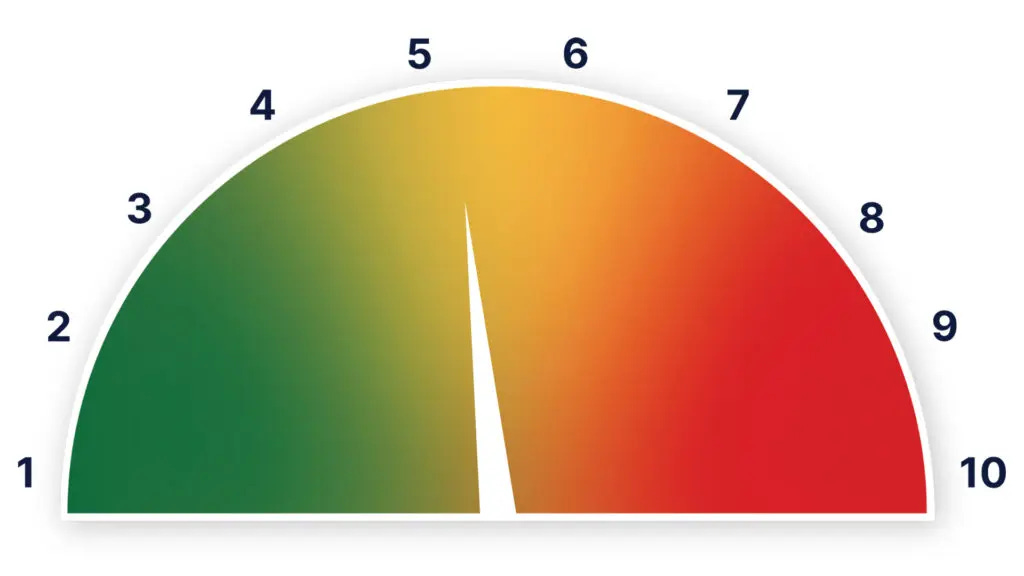How a New Experiment Could Usefully Challenge News Judgments
A word on behalf of the Messenger Scale
Welcome to Second Rough Draft, a newsletter about journalism in our time, how it (often its business) is evolving, and the challenges it faces.
A newspaper editor (not Mark Twain!) once observed that “everybody talks about the weather but nobody seems to do anything about it.” (Of course, this was in the 19th Century; now we have all done something about it, although nothing good.) The same situation sometimes feels like it applies to the need for continuing innovation in journalism, amid the crises of collapsing business models, declines in trust, news avoidance—you know, the whole mess.
Of course there have been recent innovations, ranging from the Axios story format (and its cousin at Semafor) to more transparent responses to criticism, to more detailed bylines, and this newsletter has even celebrated a few. But there have not yet been enough, at least in my view, to meet the moment. (And not all innovation will be successful. Personally, I was intrigued by Murdoch’s The Daily news app from more than a decade ago, even if few others were.)
In any event, we need to keep trying. That’s why I want this week to focus on a new innovation that strikes me as very interesting, perhaps especially because it comes from an unexpected source.
The source is the much-derided new publication The Messenger, and the innovation is their Scale, which they describe as “like the Richter Scale for earthquakes, but for news.”
Here’s how it works: When news breaks, The Messenger polls a group of about 80 experienced observers (“from the worlds of politics, policy, law, history, academia and media”) it has assembled—quite consciously from across the political spectrum-- and asks them to quickly rank the news on a scale of 1 to 10. It then publishes the average score from the group, as well as a selection of brief (optional) explanations for the ranking. At first, the experiment was limited to stories around the various Trump-related scandals, but starting last week it broadened out to occasionally include items like the debt ceiling deal. Here’s a piece charting all the Scale readings though last week.
In one case, The Messenger asked the unpaid group (of which I have been a member for a few weeks, although I was not at the outset) to rank three stories at once, and seemed to defer to the group’s judgment, at least in the short run, in noting which event the group had deemed most important, both in a piece reporting the rankings and in its short-term home page display of stories.
This isn’t a perfect idea—I think my fellow panelists’ ratings have tended to generally run too high.[1] (If January 6 itself was a 10, was the long sentence for the lead Oath Keeper really as high as a 6?). It would be better to report the median rather than the average score, to limit the influence of partisans and others who may be prone to extreme conclusions. You may not agree with the panel’s relative judgments of various events, although that shouldn’t be the decisive point.
The composition of the panel is highly imperfect, and could much better reflect the country as a whole. Like the authors of pieces in the Messenger’s opinion section, the group is inexcusably, overwhelmingly male, for instance. Senior editor Darren Samuelsohn told me, "Our team is actively growing our panel of experts and we are working hard to address this. We are committed to having a panel that fully reflects the society we report on."
What sharing power looks like
For all its imperfections, it should be evident that the Messenger Scale actually does something people have called for: sharing the power of editorial agenda-setting in a way that doesn’t compromise the independence of the press, while promoting context and perspective.
Inviting outsiders to question your initial news judgments is a bold step, I think, and strikes close to the heart of editorial prerogatives that have long gone unchallenged. I can easily imagine how editors would benefit from this sort of feedback, especially as they are trying to sort through the importance of breaking news. The more specialized the news event (and panel), the greater the value might be.
That is not to say that journalists should surrender to supposed “experts”—history is littered with occasions when those who ostensibly should have been the best informed missed the significance of change. And there may be subjects on which it would make sense to survey typical readers rather than experts. Such an approach might, for instance, help close the remarkable gap between the 34% of Philadelphians who recently reported that timely trash removal was the most important facing issue their city and the fact that only three percent of local news stories covered this problem.
I hope all the news folks looking down their noses at The Messenger will take a moment to recognize its willingness to experiment, to innovate— and will consider anew how else we might change how we do journalism in our time. Ours is certainly not a moment for complacency.
[1] The Richter is a base 10 logarithmic scale, which means, for instance, that a 7 earthquake is 10 times more powerful than a 6. Some of the rankings my fellow Messenger panelists have been applying would make more sense to me if this is their implicit intent. But it’s clear that a logarithmic scale is not what the Messenger editors had in mind.




